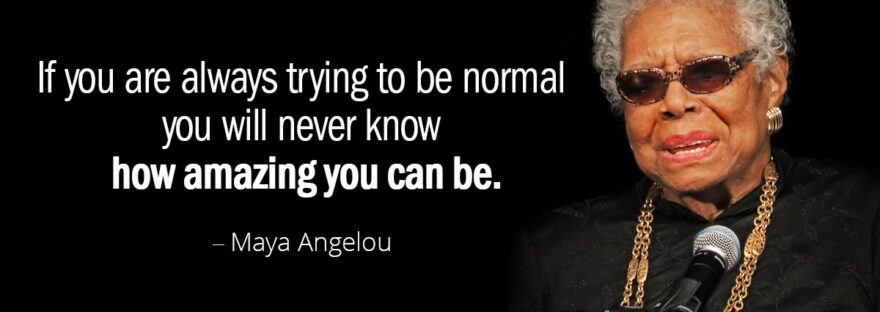NORMAL IS BORING
As a neonatal therapist, I encounter one word from parents about their child – “normal”, as in “will my child be normal?” On this International Day of Person with Disabilities, I would like to answer that complicated question with a simple “Yes”. Let me try to explain the complexity of this simple answer.
Normal or typical is when there is conformity to a pre-established, sometimes arbitrary, set of behaviors. In this discussion of typical, we tend to forget that behaviors are not static. There is a spectrum of behavior and for most of the population with intact functioning systems, we mostly fluctuate within an acceptable or tolerable range of this spectrum. For example, getting frustrated driving in slow-moving traffic is acceptable but remaining frustrated throughout the day would indicate a concern. If we all have fluctuations through our day and lives, what is “normal”?
Amidst the fear and worry about normalcy, we lose track of functional capacities of humans. We are all capable of reaching a certain place mentally and physically given our environments and who we are. Not all of us with so-called ‘intact’ bodies are physically or mentally fit and not all of us with impaired physique or mind will have a doomed life. Skills, related to life or vocational ones, are learned over time with the right guidance, feedback and repeated practice. How much of guidance, feedback and practice, is specific to each person. I don’t cook well, so I don’t cook for fancy dinner parties. I don’t do Math fast, so I use a calculator before I write checks. I don’t walk well, so I use a cane or a wheelchair to get around. I don’t hear well, so I lip read, use sign language or read written materials. Life is what we make of it, irrespective of and in spite of.

What does this mean for a parent who has spent many weeks at the bedside of their very tiny preterm infant in the NICU in a constant state of anxiety and stress? All parents want the very best for their child and will try to give the best they can. An important aspect of this is also parent well-being. Parent’s mental state has a huge impact on brain development of our babies. (Co-regulation) Evidence has shown a clear connection between parental engagement, self-efficacy and confidence on developmental outcomes from the first moments of life.
Just like in the airplane, during an emergency, they always ask you to wear your oxygen mask first before helping others, caregivers cannot provide the best possible care if they are unwell. It’s best to seek support from family members, friends or peers. Seeking professional help to talk about what the facts vs myths of developmental milestones are and understanding how parent role impacts will go a long way. Giving birth does not automatically make you knowledgeable about child development. However, you as a parent can bring in insight into the child’s strengths as no one else can. Work as a team with professionals instead of struggling on your own till it is late. Therapy works best if done while the brain is already molding and making functional connections.
As hard as it is, seeing the glass half full, will help not only you but also this young child who is seeing the world through your eyes. If the discussion revolves around strengths and functional independence and the attitude is of resilience, we are all normal.
Puja
12/3/2022

